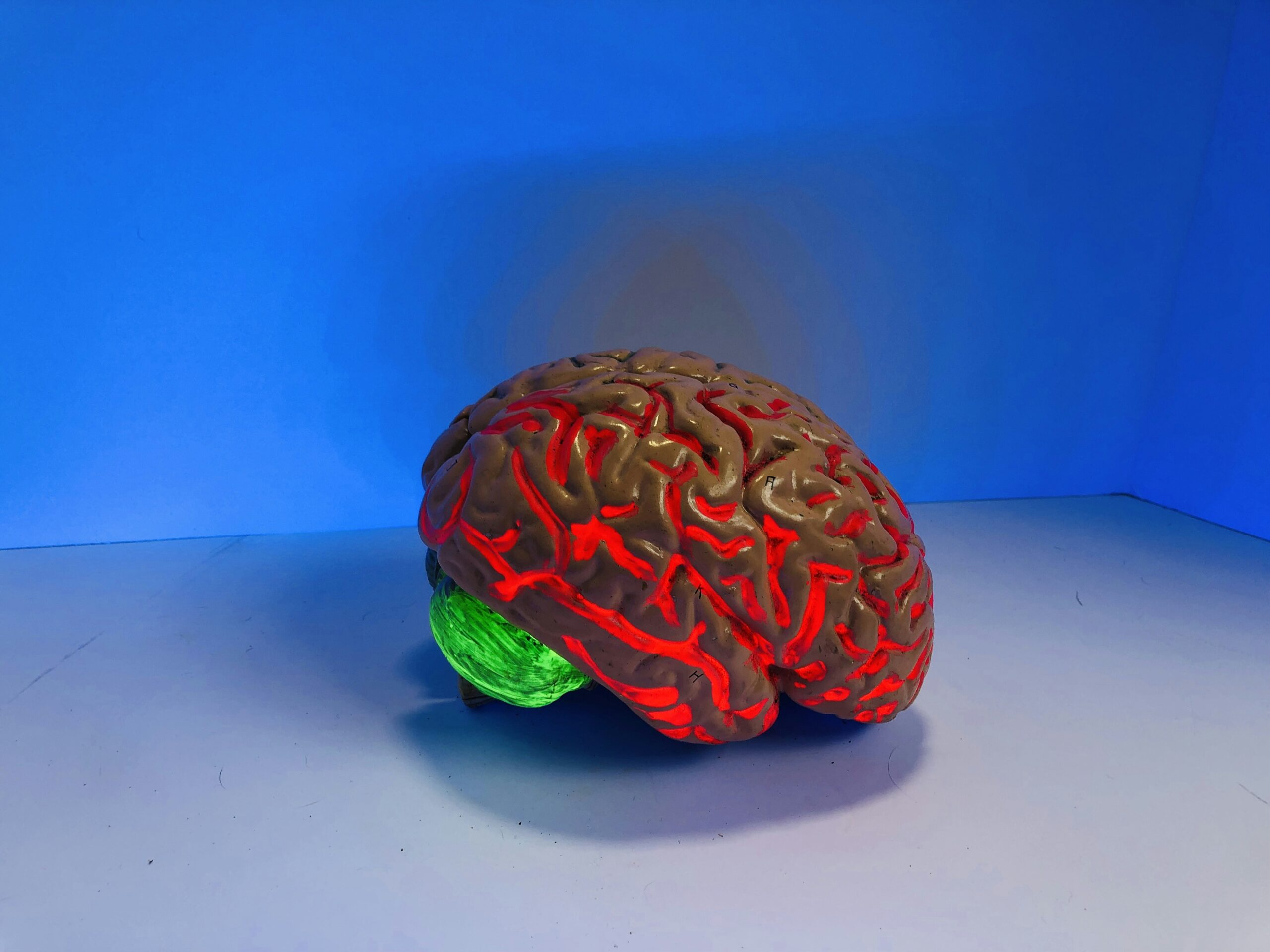Have you ever found yourself grappling with the frustration of forgetting where you've placed your keys or trying to recall someone's name during a conversation? While occasional forgetfulness is normal, especially in our busy lives, it's crucial to recognize when these episodes might point to something more significant. Understanding the early symptoms of memory loss can empower you to take decisive steps toward maintaining mental sharpness.

Understanding Memory Loss
Memory loss is not simply about forgetting things; it is about losing the ability to recall and retain information that was once easily accessible. While some degree of forgetfulness is a normal part of aging, there are specific signs that differentiate typical memory issues from those that merit closer attention.
What is Normal Forgetfulness?
Before delving into symptoms that may indicate more serious concerns, it's important to clarify what constitutes normal forgetfulness. Everyone occasionally loses items, like misplacing a wallet or forgetting someone’s name, especially when stressed or distracted. Such incidents typically do not severely impact your daily life.
Typical Signs
- Temporary loss of hearing acquaintances' names
- Misplacing everyday items but eventually recalling them
- Forgetting appointments but remembering later
- Occasional confusion when multitasking
None of these symptoms drastically affect your ability to perform daily tasks.
Early Symptoms of Concerning Memory Loss
When memory lapses begin to disrupt your usual routine or affect your cognitive abilities, it might indicate the onset of a more serious issue. Here are some early indicators to be aware of:
Repeated Forgetfulness
If you notice a pattern of frequently forgetting important information, like appointments, conversations, or recent events, this could be a red flag. Unlike common forgetfulness, this pattern is consistent and noticeable to you and possibly those around you.
Difficulty Completing Familiar Tasks
Struggling with tasks that were once routine, such as managing finances, cooking, or driving to familiar places, is concerning. You might find that these activities, which were once second nature, now require more concentration and time.
Trouble with Language
Language difficulties can also be an early sign of memory problems. This includes forgetting common words, losing your train of thought, or failing to join words into coherent sentences. If you frequently pause while talking, unsure of what to say, it may warrant further evaluation.
Misplacing Items Frequently
It's typical to forget where you placed something, but recurrently putting things in unusual places and being unable to retrace your steps could indicate a deeper problem.
Impaired Judgment
A decline in decision-making abilities or exhibiting poor judgment, such as being overly trusting of strangers or mishandling finances, might signal the beginning of a more serious issue.
Other Factors that Might Mimic Memory Loss
Sometimes, factors unrelated to neurological issues can mimic symptoms of memory loss. It's important to distinguish between these causes to better understand your situation.
Stress and Anxiety
High stress or anxiety levels can impair your ability to focus and form new memories, which might seem like memory loss. Managing these emotions is crucial for mental clarity.
Lack of Sleep
Sleep plays a vital role in memory consolidation. Chronic sleep deprivation can affect memory retention, concentration, and problem-solving abilities.
Depression
Depression can seriously affect concentration, making it difficult to focus on tasks, which might resemble memory problems. Addressing underlying mental health issues is a key step toward improving cognitive function.
Medication Side Effects
Certain medications can have side effects that impact memory and cognition. If you've recently started a new medication and notice memory issues, consult with your healthcare provider for a possible solution.
Risk Factors for Memory Loss
Understanding risk factors associated with memory loss can help in early detection and prevention strategies. While aging is a natural risk factor, several other elements may contribute to developing memory-related issues.
Family History
A family history of dementia or Alzheimer's disease can increase your risk. If these conditions are prevalent in your family, it’s wise to be proactive in monitoring your cognitive health.
Lifestyle Choices
An unhealthy lifestyle, including poor diet, lack of exercise, and smoking, can lead to vascular problems affecting your brain health. Adopting a healthier lifestyle can mitigate these risks.
Chronic Health Conditions
Conditions like diabetes, cardiovascular diseases, and hypertension can increase the risk of memory loss due to their impact on blood vessels, which nourish the brain. Managing these conditions with the help of a healthcare provider can be vital.
Traumatic Brain Injury
Experiencing a significant head injury can also increase the risk of memory loss. Protecting your head during high-risk activities and seeking immediate care after any injury is crucial.
Steps to Take if You Notice Symptoms
Recognizing early symptoms of memory problems should prompt you to seek evaluation and possible intervention. Here’s what you can do:
Seek Medical Advice
If you observe concerning symptoms, consult with a healthcare professional promptly. They can conduct relevant tests to determine whether the memory loss is part of a larger issue.
Cognitive Assessment
A cognitive assessment performed by a specialist can help identify specific areas of concern and track changes over time. This information will be vital in forming a comprehensive treatment plan.
Lifestyle Adjustments
Consider making lifestyle changes to support brain health. Engaging in regular physical activity, maintaining a balanced diet, and ensuring adequate sleep can help maintain cognitive function.
| Lifestyle Adjustment | Benefit |
|---|---|
| Regular Exercise | Boosts brain health by improving blood flow |
| Balanced Diet | Provides necessary nutrients for cognitive function |
| Quality Sleep | Critical for memory consolidation and cognitive health |
| Mental Stimulation | Keeps the brain active and engaged |
| Stress Management | Reduces the impact of stress on cognitive abilities |
Mental Stimulation
Keep your brain active with puzzles, learning new skills, or engaging in memory exercises. Challenging your mind can build cognitive reserve, which helps protect against memory loss.

When to Consider Professional Help
If the symptoms you're experiencing are progressive or deteriorating despite making lifestyle adjustments, professional help is necessary. More profound symptoms that disrupt daily functioning demand a thorough medical evaluation.
Neurological Evaluation
A neurologist can offer detailed diagnostics, checking for specific disorders like Alzheimer’s disease or other forms of dementia. Understanding the underlying cause is essential for appropriate intervention.
Psychological Support
Depending on the diagnosis, psychological support, such as counseling, might be recommended to help manage fears and emotions associated with cognitive decline. Engaging with support groups can also provide a community of understanding and shared experiences.
Medication
There are medications available that may improve symptoms or slow down their progression. A healthcare provider can determine if these treatments are suitable for your situation.
Proactive Strategies for Brain Health
Being proactive in caring for your brain health can help maintain cognitive functions. Here are some tried-and-tested strategies that benefit brain health and reduce the risk of memory loss:
Regular Physical Activity
Exercise is not only beneficial for your physical health but also for your brain. Activities that increase heart rate help promote blood and oxygen flow to the brain, which supports cognitive health.
Nutritious Diet
Aim for a diet rich in fruits, vegetables, whole grains, and lean proteins. Nutrients like omega-3 fatty acids, found in fish, are known to support brain function.
Sufficient Sleep
A regular sleep schedule is crucial for cognitive performance. Ensure you get between 7 to 9 hours of sleep per night to support your body's natural rhythms and cognitive processes.
Mental Exercises
Engage your brain with activities that require thought and strategy. This could be attending classes, learning a new language, or participating in activities like chess and other strategy games.
Stress Reduction
Implement stress-reduction techniques such as meditation, deep breathing exercises, or yoga. These practices can lower stress levels, thus supporting overall brain health.
Being aware of the early signs of memory loss and understanding when those signs might be a cause for concern can make a significant difference in the outcomes of your or a loved one's cognitive health. Taking early action, engaging with healthcare professionals, and making conscious changes in daily habits can help maintain mental sharpness and enhance quality of life. Remember, being informed is a powerful tool in fostering a healthy, active mind.



